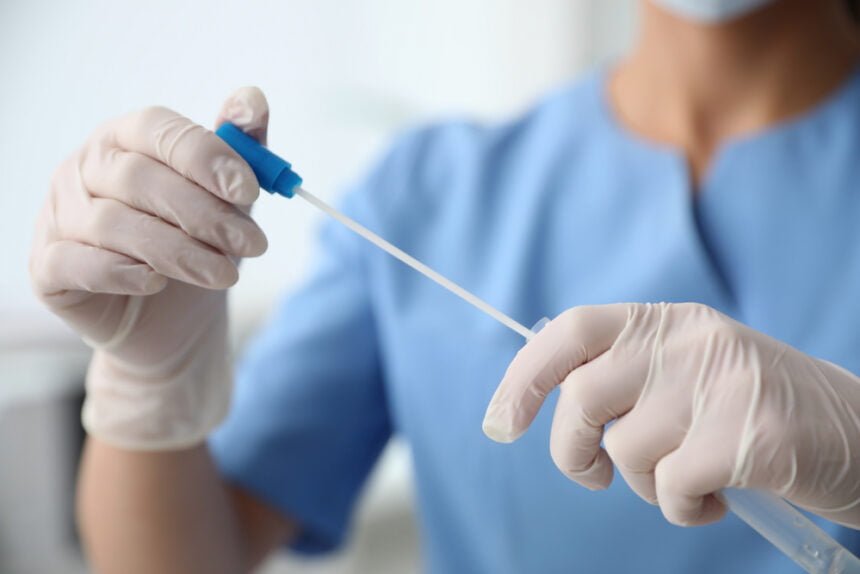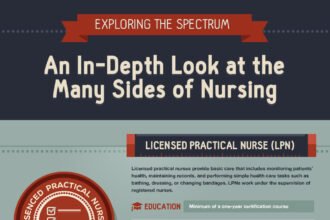Forensic nurses (FNs) are either registered or advanced practice nurses who have completed additional professional development. This is in the form of additional training, education and qualifications, which allow them to provide various kinds of specialized care. Primarily, they treat people who have experienced some kind of trauma. This could be through neglect or a deliberate act of aggression.
Along with providing highly specialized care for patients with health consequences due to their experience, FNs are a key part of anti-violence law enforcement. They gather evidence after an incident and offer testimony in a court of law, which contributes towards detaining and prosecuting people involved in crime. In addition to treating the physical and emotional traumas associated with injuries and assaults, they also contribute to tackling crime.
Although they have a specific, specialized role to fulfil in a hospital or clinical setting, forensic nursing care is not separate from any other type of medical care. An FN’s work is included in each patient’s healthcare needs and is tailored to their individual needs. It is this care that forensic nurses can use to inform the evidence they give at trial or the advice they offer as expert consultants in civil cases.
The role of forensic nurses
In addition to managing the wellness of their patients, forensic nurses provide comprehensive medical and forensic examinations. Their work combines traditional nursing practice with elements of scientific study and the legal system. This means they stand at the intersection of law and medicine and use their knowledge of one to inform the other.
Forensic nurses deliver a full range of medical care to people who have experienced a violent incident. Although they are engaged in gathering evidence, their key priority is the treatment and recovery of their patients. To excel in this role, practitioners must be especially compassionate, communicate well with many different types of people, make decisions autonomously and feel confident in conducting assessments. Forensic nurses are detail-orientated to ensure the job is done thoroughly and nothing is missed.
How to become a forensic nurse
As forensics is a specialty within the nursing field, practitioners must qualify in the same way as other nurses. Paths into the profession vary greatly depending on the preference of each nurse and their previous experience. As the role involves working closely with patients, experience in a front-line role is essential, as are excellent clinical assessment skills.
Many nurses choose to take an advanced practice qualification to learn more about working at senior levels of healthcare before obtaining forensic nursing certifications. For many medical professionals, advanced training at university can appear impossible, as it can be difficult to fit it in with their work and home life. To encourage more healthcare workers to obtain advanced skills, reputable institutions such as Cleveland State University now offer a wide range of online learning programs.
Nurses who are interested in advancing their careers by obtaining additional qualifications and are wondering how long does it take to become a forensic nurse, can complete a program remotely. At Cleveland State University, students can qualify through the Master of Science in Nursing – Clinical Nurse Leader (MSN-CNL) program in as little as 19 months. Delivered completely online, this program prepares practitioners for leadership roles in healthcare with an emphasis on excellence in patient care. Once they have graduated, nurses can take additional certifications and gain experience in forensic nursing before pursuing a full-time role in the field.
Settings forensic nurses work in
In the US, most forensic nurses are employed in hospitals, correctional facilities, medical examiner offices and community anti-violence programs. They can also find work in psychiatric hospitals and clinics, as well as in the field, when a disaster or crisis is affecting a community. Within these settings, forensic nurses often have a specialized role. Some of the most common are those that deal with neglect, sexual assault, elder abuse, corrections and death investigations. Depending on their certifications and experience, some have subspecialties, such as working with seniors, adults or adolescents, or as legal nurses or in psychiatric nursing.
Why is the forensic nurse’s role so important in modern healthcare?
Back in 1990, a master’s student named Virginia A. Lynch wrote a thesis entitled Clinical Forensic Nursing: A Descriptive Study in Role Development. She studied and then wrote about the importance of nurses in gathering evidence and speculated that forensic nursing could, at some point in the future, become standardized. Having worked for the state of Georgia as a medicolegal death investigator, she understood how this could vastly improve the experience of patients who had experienced trauma and the legal process.
Her work was so pioneering that just a year later, in 1991, the American Academy of Forensic Sciences tasked Lynch with creating a definition for forensic nursing practice and brought nurses in this specialty into their organization. By 1995, forensic nursing was recognized as a specialty by the American Nurses Association.
In the last 30 years, this specialty has continued to grow and develop within the American healthcare system. Practitioners have proven themselves invaluable when it comes to giving vulnerable people a voice, helping them to stay safe and offering medical treatment. The training forensic nurses receive means they are ready to seek justice for the people in their care and help bring criminals to justice.
Why are forensic nurses in more demand than ever before?
Forensic nurses carry out a range of duties within a facility and are responsible for many diverse tasks. Exactly what they do every day will depend on where they’re working and what their job title is. In most cases, it will combine patient-facing nursing with criminal justice expertise. It’s the level of specialization, training and singular role of forensic nurses that has led to them being in more demand over the last decade. However, there are other factors at play, such as:
General shortage of healthcare workers
As far back as 2009, studies were highlighting a future healthcare staffing crisis that researchers believed could hit the healthcare system at any time. The reasons for this shortage are many, but there is a pressing need for almost every type of health professional, from nurse practitioners to physicians, home health aides and surgeons. Naturally, forensic nurses are also in high demand, as there are not enough of them.
In part, the lack of medical staff can be explained by highlighting the success of the US healthcare system. With excellent care, Americans are living longer, but that means we have an aging population with a full spectrum of health needs. Some people are living with more than one chronic condition and will need more medical care than others. In addition, the Affordable Care Act increased the number of citizens who could gain access to Medicaid and obtain free or subsidized care. Of course, this is a good thing; however, additional staff are needed to care for the extra people on wards and in clinics.
Unfortunately, even though the shortage was predicted, there is no quick fix to solve the problem. All healthcare workers are required to complete extensive training, and in roles such as forensic nursing, specific qualifications are often needed. Hospitals and clinics need to wait for new practitioners to be trained and graduate before they can fill even less senior positions.
Forensic nurses fulfill a specific role
Although all nurses can care for trauma patients, forensic nurses are also trained to evaluate people who are suspected of having experienced a violent incident and manage the situation with respect to evidence collection. Part of their work involves identifying any evidence that could be relevant to a future case, then collecting it and preserving it according to the legal guidelines. This ensures that any materials that might otherwise be lost or contaminated are gathered with care during a patient’s visit to the hospital.
In addition, forensic nurses learn to incorporate holistic practices as part of their training. They provide care that is trauma-informed to encourage a high level of engagement with patients, in addition to adhering to any agreed treatment plan, which can improve a person’s health outcomes.
Using their experience and knowledge, FNs can either help a team of lawyers establish a case against a criminal or provide testimony in court. For a forensic nurse, the problem of violence and neglect in the US is an issue for healthcare practitioners and communities, so they strive to take criminals off the streets. They are also dedicated to assisting people who have experienced trauma and supporting their recovery.
Highly specialized skills
All nurses have soft and hard skills that allow them to care for patients effectively. However, forensic nurses need to learn and refine these in different ways in order to succeed.
Patients who have experienced a traumatic event require additional comfort, reassurance and assistance. By showing empathy and compassion to people who are in pain or feel vulnerable, nurses can be more successful when it comes to winning their trust and establishing a positive relationship as a result.
Nurses always advocate for the people in their care, but this advocacy is usually aimed at ensuring the patient’s concerns and preferences are respected by colleagues and social workers. In forensics, this element of the role is taken to another level as nurses can be asked to appear in court as a witness for the patient. They are often called upon to describe the condition of a person when they arrived in the hospital and what treatments were necessary to support their recovery.
Forensic nurses write reports that are used as part of a legal case, which will be seen by lawyers and the police, as well as the court and the patient’s family. This means that excellent oral and written communication skills are important to ensure the information being passed on is accurate and relevant.
Collecting evidence to a legal standard, which ensures it is admissible in court, requires excellent attention to detail. This evidence can make all the difference to a patient’s care, so nurses cannot miss anything important, even if it seems inconsequential at the time. From medical photography that records injuries to collecting samples and identifying substances, every aspect of this role requires a high level of focus.
Patients who have experienced trauma need to feel safe before they can open up about their experience and accept treatment. They need to feel that their forensic nurse is someone who will keep them safe and treat their disclosures securely. This makes confidentiality another important part of forensic nursing. In this field, practitioners manage very sensitive cases, so establishing trust and maintaining confidentiality are key.
Hospitals are recruiting more forensic nurses
Bridging the area between a patient’s legal and health needs, forensic nurses have a unique role in both medical care and legal procedures. They have completed specialized education and are licensed by the state, and this makes them desirable professionals in a hospital setting. Increasingly, facilities are recognizing the need for people with forensic training to take on leadership roles in a general or ER ward. This is because they can provide expert care in addition to collaborating with a range of other professionals who may be connected to a case of suspected trauma.
Trauma can leave a person with life-threatening injuries, as well as severe emotional damage that will continue to impact their social, mental and physical wellness. By having a forensic nurse on hand to provide assistance, the hospital can support the best possible start to their recovery.
Forensic nurses are the ideal professionals to offer care when there is a legal consideration attached to the patient’s health needs. While other nurses and even physicians might struggle to recognize harm caused by intentional trauma, compared to unintentional trauma, that skill makes up part of a forensic nurse’s training. In a hospital, forensic nurses can lead a team and coordinate the care of a trauma patient, in addition to collecting any available evidence. This ensures that other members of the healthcare team can get on with healing the patient and focus on the individual’s physical recovery.
Forensic nursing expertise is needed in extreme settings
Forensic nurses are highly flexible professionals who can adapt their practice to a range of different environments. They are often needed in the aftermath of a disaster that has claimed human lives and caused many injuries. This includes events that are triggered by natural phenomena or deliberate acts of violence, such as terrorism. Depending on the location, there can be tens, hundreds or even thousands of patients who need specialist care.
States are interested in having forensic nurses on hand for the next emergency because there is a general shift from reacting to a situation as it occurs to being prepared with a coordinated response and recovery plan. Nurses have always been on the front lines of catastrophes and war, in a tradition that goes back to Florence Nightingale.
In this position, forensic nurses can provide education to other emergency workers, direct patient care and carry out research into effective medical care during a disaster situation. This can enhance the practice of their peers and inform consultants from other disciplines who find themselves assisting in a large-scale emergency. Through their research and while working on the ground, forensic nurses can bring teams together and ensure everyone who is involved with the rescue and recovery effort understands what is required of them.
Whether a disaster is ultimately a man-made incident or part of a natural event, there will be legal considerations to bear in mind. Forensic nurses can help others to recognize the types of evidence that are relevant and show them how it must be collected and preserved immediately on the scene.
These specially trained nurses will do so while treating individuals who need their care at the same time, as these two aspects of their role are never separate. The medicolegal work must begin straight away. Throughout the recovery stage, they will assist with looking for causes of the disaster to support legal proceedings.
A multifaceted role
Forensic nurses are primarily nurses, so their priority remains patient care. However, they balance this medical support with gathering and preserving evidence and assessing its usefulness. In this role, nurses are there for patients at their most vulnerable times. In addition to assisting with a person’s physical recovery, they help them to heal emotionally, and that makes the job incredibly rewarding.










